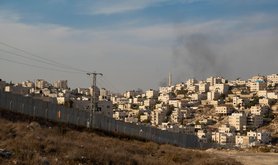Turkey is one of the countries hardest hit by violent radicalisation. Hundreds of people have lost their lives in nearly 2,000 deadly extremist attacks in the last two decades. Separatists, jihadists and extremists from both the Left and Right have bombed public gatherings, gunned down intellectuals and journalists, ambushed law enforcement personnel, and targeted religious and ethnic minorities.
But instead of developing an integrated legal framework that would not only punish those responsible for attacks but also impose deradicalisation measures, Turkish state institutions have instead adopted a very broad definition of terrorism that increasingly covers peaceful acts of dissidence and further limits political freedoms.
There is a lack of clarity in the laws around online crime, and internet law is more widely used to restrict freedom of expression than to identify online radicalisation. The law sets limits on what is permitted in online content. It also forces international news and social media platforms to appoint local representatives, localise their data, and speed up the removal of content if requested by the government. In addition, it gives the state the right to acquire communication data without court permission, with this data sometimes used to incriminate the opposition.
In 1994 Turkey introduced the Return to Village and Rehabilitation Project, which promised new housing and infrastructure in Kurdish rural areas, in an attempt to repair the damage caused by the decades-long conflict between the Turkish state and Kurdish armed groups.
Given the Turkish state’s punitive legal framework and emphasis on security, the project should be recognised as a substantial effort, despite its failure to realise its goals. It aimed to remedy the consequences of the conflict by creating incentives for Kurdish groups to give up their armed struggle, while acknowledging their right to make peaceful demands concerning their ethnic and cultural identity. Nevertheless, the project was withdrawn.
The project only targeted Kurdish-separatist radicalisation – we don’t see similar efforts targeting jihadist, right-wing or left-wing forms of radicalisation – and the state’s return to its traditional counter-terrorism method of operation has been swift and determined. Politicians such as Selahattin Demirtaş, former leader of the left-wing, pro-Kurdish Peoples’ Democratic Party (HDP), have been imprisoned without any solid evidence tying them to violent acts allegedly committed by the Kurdistan Workers’ Party (PKK). The elected mayors of several Kurdish-majority municipalities have been dismissed on grounds of terrorist activity, only to be replaced by caretaker bureaucrats.
The country’s only deradicalisation efforts are prison programmes, police force projects, and activities by the Directorate of Religious Affairs. These are mostly directed against jihadist radicalisation, with seminars on the peaceful interpretation of religion held in prisons.






Comments
We encourage anyone to comment, please consult the oD commenting guidelines if you have any questions.